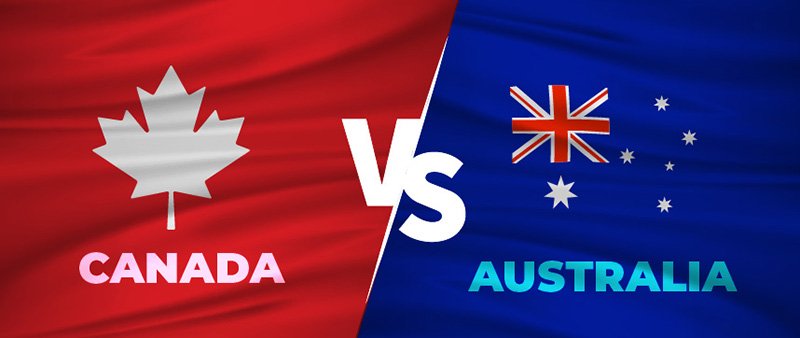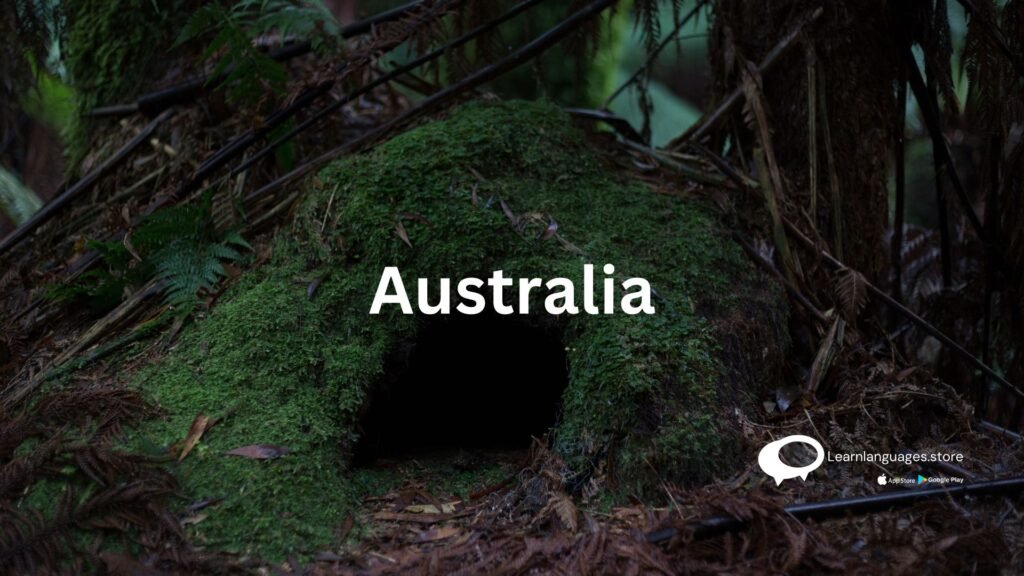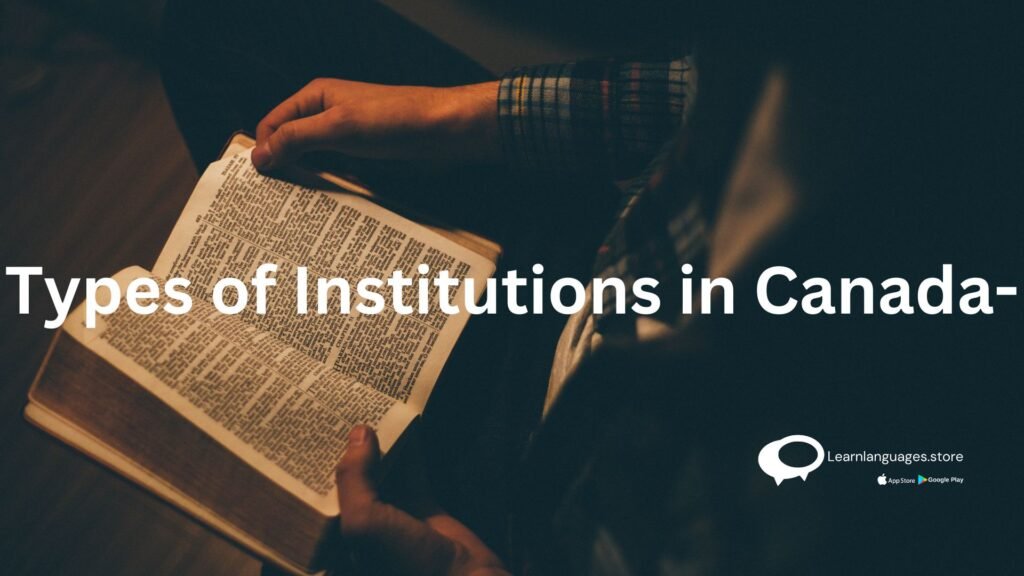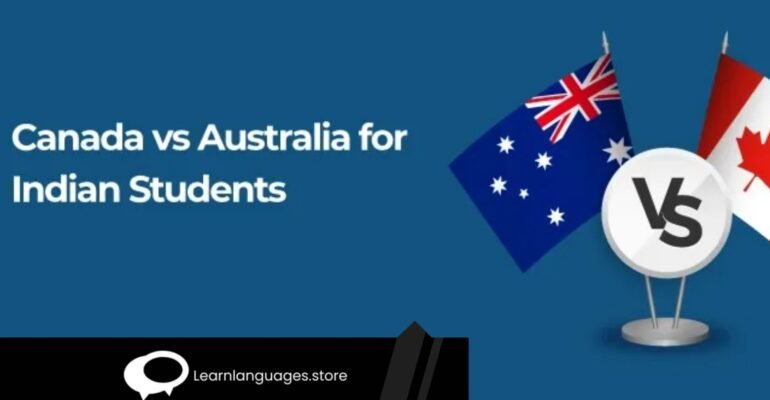Canada vs Australia for Indian Students- Which is Best?
Canada vs Australia for Indian Students- Which is Best?
Selecting the best destination for studying abroad may be a challenging and intimidating task when one’s alternatives are as lively and varied as Canada and Australia. Both countries are well known for their excellent educational systems, diverse cultural heritages, and welcoming approaches to international students. But how can a student from India decide which area is best? This blog post will analyze several factors, including educational quality, cost of living, career prospects after graduation, and cultural diversity, to help you make an educated decision.
Estimated reading time: 5 minutes

Canada

Canada, the second-largest country in the world, is well known for its beautiful landscapes, kind citizens, and robust economy. It is renowned for more than just its physical appeal; it is also a popular destination for Indian students seeking a top-notch education and exposure to a variety of cultures. The devotion of Canadian universities to both teaching and research in the subject of education is well known across the world. Continually ranking among the greatest universities in the world are the Universities of Toronto, Alberta, and British Columbia. Students have the opportunity to choose and combine majors and minors from a number of programs offered by Canadian universities to design a course of study that best meets their interests.
Australia

Australia, sometimes referred to as the Land Down Under, is renowned for its commitment to providing top-notch education, as well as for its unique wildlife and magnificent scenery. With its diverse multicultural population, thriving cities, and sunny beaches, it has become a popular study destination for students from across the world. Australian institutions are well-known for providing top-notch education on a global scale. The University of New South Wales, Griffith University, and Western Sydney University are just a few of the universities that routinely rank among the best in the world. Research, science, and technology are given top priority in Australian universities, which fosters student innovation and creativity. They provide a huge selection of courses.
Key Highlights
| FACTOR | CANADA | AUSTRALIA |
| Language of communication | English | English |
| Total Number of International students | 800,000+ | Upto 570,000 |
| Indian Students | 320,000+ | 120,000+ |
| Intakes | Fall (September), Spring (January), and Summer (May) | Semester 1- February Semester 2- July Semester 3- November |
Quality of Education in Canada and Australia-
Due to their superior educational institutions, internationally renowned universities, and broad selection of courses, Canada and Australia are both top choices for foreign students. Australian universities are recognized for their vocational education and training programs, whereas Canadian universities are known for their undergraduate, postgraduate, and research programs.
Types of Institutions in Canada-

Public universities—Public universities are the most prestigious academic institutions in Canada. They provide a variety of undergraduate and graduate programs and are funded by the provincial, territory, or federal governments.
For instance- University of British Columbia and York University
Private Universities- These are supported by tuition, gifts, and private sources. They may have a particular concentration, such as business or the arts, and they provide both undergraduate and graduate programs.
For instance- the University of Canada West
Community Colleges- These are publicly supported educational institutions that provide a variety of programs, such as apprenticeships, certifications, and certain bachelor’s degree programs. They frequently concentrate on giving practical training and job-related skills.
For instance- Centennial College and Humber College
After finishing high school but before enrolling in college, students in Quebec attend a College of General and Vocational Education (CEGEP). These provide pre-university courses that get pupils ready for college or technical courses that get them ready for the job market.
Polytechnics and Technical Institutes: These colleges provide teaching in technical fields and crafts. With a focus on ties to industry and applied research, they provide certificates, diplomas, and degree programs.
Conestoga College and George Brown College, for instance
Types of Institutions in Australia-
Universities: These educational institutions provide certifications, postgraduate certificates, doctoral degrees, bachelor’s degrees, master’s degrees, and doctorate degrees in a range of academic areas.
Bond University and Central Queensland University, for instance
Private colleges and Technical and Further Education (TAFE) institutes are examples of vocational education and training (VET) institutions. They offer practical, career-focused training in addition to degrees, certificates, and advanced degrees. A few VET courses provide routes to higher education.
Providers of English Language Intensive Courses for International Students (ELICOS): These institutions provide courses to students who want to improve their English for use in the classroom, at job, or in order to immigrate.
Popular Job Prospects in Canada
- Digital Marketer
- Graphic Designer
- Banker
- Financial Analyst
- Medical Practitioner
- Mechanical Engineer
Popular Job Prospects in Australia
- Business Analyst
- Computer Engineer
- Data Scientist
- Program Coordinator
- Teacher/Professor
Post-Study Work Opportunities in Canada and Australia
In Australia and Canada, post-study work opportunities are strong, and they may lead to profitable occupations and avenues for permanent residency.
Canada-
The Post-Graduation Work Permit (PGWP) allows international students who have completed a program of study that lasted at least eight months at an accredited institution of higher learning to work in Canada for up to three years, depending on the length of their study program.
The Canadian Experience Class (CEC) is an immigration category for foreign employees who desire to settle in Canada permanently. International students who have worked in Canada may be eligible to apply.
Provinces in Canada can propose people for immigration to their province based on criteria established by the province through the Provincial Nominee Program (PNP). This may open up a another route to citizenship.
Learn Languages Store
Vashi,
Email: services@learnlanguages.store










